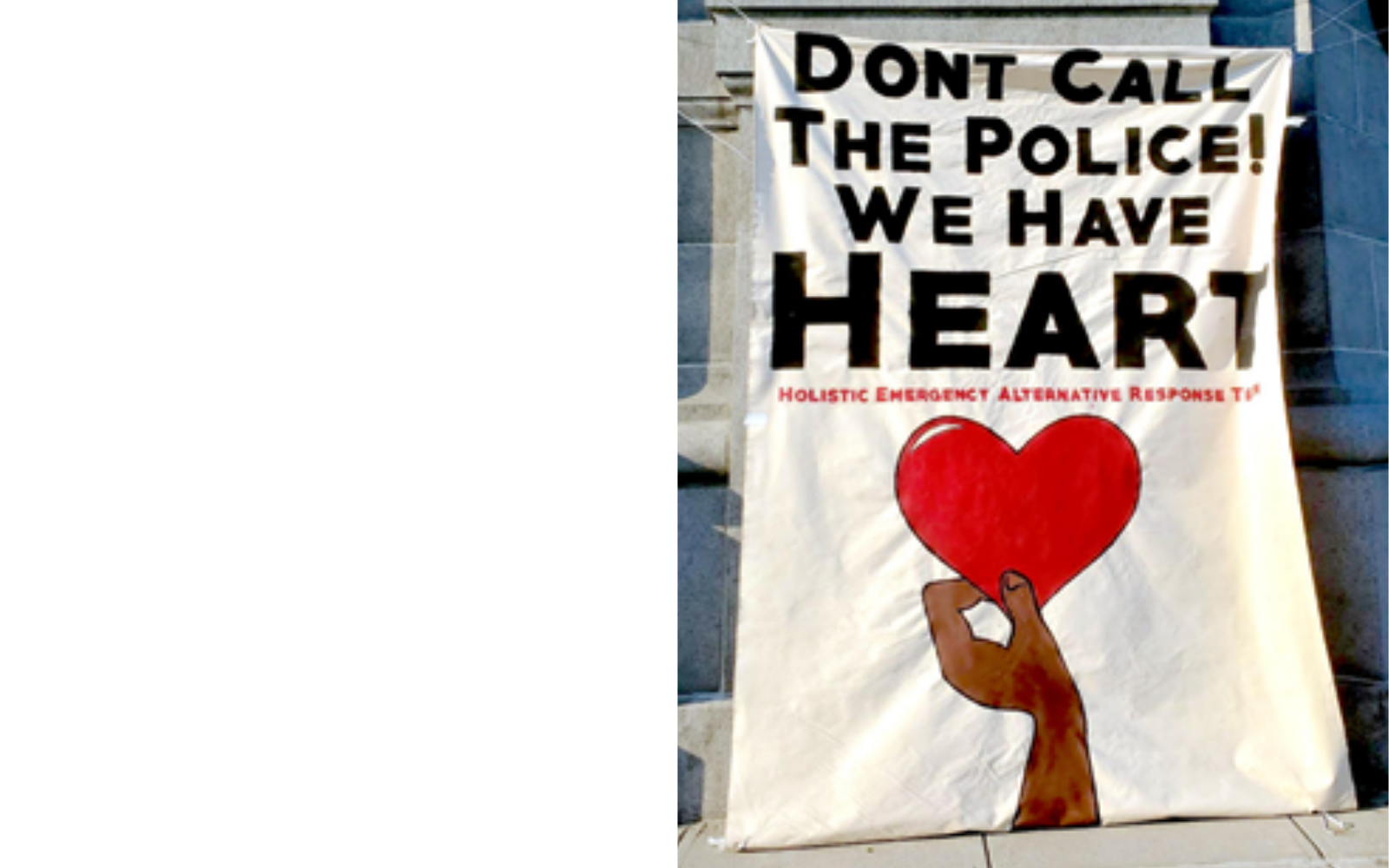
MyHEART Sustainer Drive: Now open!
Cambridge HEART is launching a Sustainer Drive, with a goal to reach 25 new monthly donors! We're almost there.
Monthly donors help keep HEART accountable to our community. When we fund our own movements, we take back control.
Because monthly gifts are more reliable, they also allow us to budget ahead and be bolder in our planning. We can dream bigger when we know we have a steady stream of income all year.
Plus, if we reach our goal of 25 new donors, HEART gets an extra $2,500 donation, thanks to a match opportunity from the Resource Organizing Project!
Any amount helps us reach our goal. If you have $5 per month to spare, that makes a big difference. Help us reach our goal of 25 by choosing the “monthly” donation frequency option.
Imagining and creating community safety
What if there were an alternative to calling the police? What if that alternative was rooted in transformative and disability justice values and principles? What if responders were grounded in an ethic of care that is non-punitive and healing-centered?
These are the questions that have guided HEART’s everyday work. Envisioned by the community – from the ground up – HEART has built a program that values care, healing, community, transformative accountability and centers self-determination of those who are experiencing a crisis in our community.
HEART responds proactively and directly to community needs to prevent physical, emotional and verbal harm. HEART is designed to explicitly serve those who are un- and under-served by existing public safety systems.
We’ve all heard stories of how the police have failed communities. How about a model that builds community in times of crisis instead of creating more trauma?
Specific examples of HEART in action include:
- A woman who was the victim of coercive and financial domestic violence was contemplating suicide because she didn’t know how she was going to pay the bills. She didn’t know that there are services, like the Margaret Fuller House, that help people pay their arrears. We heard this story and supported her with financial resources and housing support through mutual aid. We also connected her to long-term services.
- A teenage mother contacted HEART because she lost her mother, who was her only source of support. Grieving and overwhelmed by the demands of taking care of her baby and the logistics that come with the death of a loved one, she was in need of social, emotional, financial, and logistical support. HEART helped her with paperwork needed to stay in her home, and arranged for immediate material aid including clothes, diapers, formula, and a grocery store gift card. HEART also arranged for ongoing community support check-ins and connected her with ongoing mutual aid.